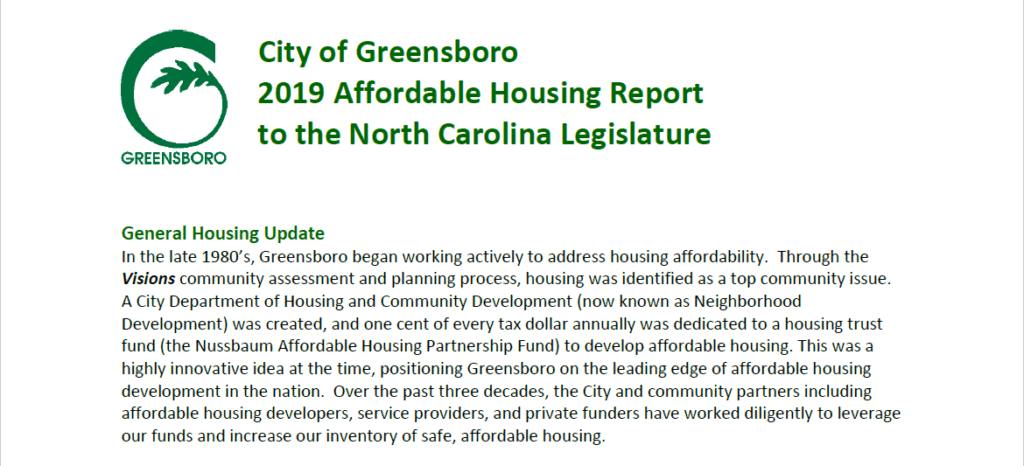
On October 1st all North Carolina cities with populations greater than 90,000 were required to report on their affordable housing related activities as part of a mandate from Senate Bill 316 (Session Law 2019-144). The bill, which passed and was signed into law in July, requires NC’s largest cities to report on the programs, subsidies, and other activities they engage in to address affordable housing concerns.
The cities required to provide reports this October were (listed from largest to smallest):
The law requires cities to calculate the number of affordable housing units within their jurisdiction. For the purposes of reporting, cities are to define affordable housing as units reserved for those with incomes up the 80% AMI (for low-income) and up to 120% AMI (moderate income) that are either subsidized with government funds or are under some sort of local government oversight, such as public housing authorities or LIHTC developments. Cities are also asked to report on their utilization of federal and state funding sources and describe their activities in 12 categories, including density and parking requirements, rehabilitation of existing housing, and whether or not they allow housing types such as accessory dwelling units (ADUs). There were no instructions on the report’s format or level of detail, as such the reports vary in breadth and level of detail provided.
Across the 10 cities that filed reports there are over 32,564 units of affordable rental housing currently in place. Among the commonalities, most cities regularly provide gap financing to make affordable housing developments financially feasible. Most also offer possibilities for reduced minimum parking requirements (MPRs), with a couple having by-right reduced MPRs.
Among some differences, a handful of cities such as Charlotte and Greensboro, are actively engaged in programs to rehabilitate uninhabitable homes within their areas to add to their affordable housing stock. Conversely, two cities, Raleigh and Cary, state that they have few or no uninhabitable housing units due to strong market demand.
The Coalition is in the process of synthesizing the reports. Look out for more detailed analysis in the next week or so.








